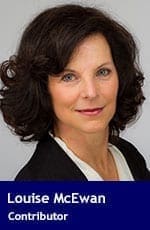 Even inflammatory statements may contain a kernel of truth.
Even inflammatory statements may contain a kernel of truth.
Such is the case with former White House chief strategist Steve Bannon’s remarks regarding the opposition of the United States Conference of Catholic Bishops to President Donald Trump’s decision to rescind DACA.
The USCCB unequivocally denounced the decision. In their statement, the bishops called it “reprehensible” and described it as “a heartbreaking moment in our history that shows the absence of mercy and goodwill.” They said the decision is counterproductive to the country’s progress and represents a “short-sighted vision for the future.” They pledged to support and advocate for DACA youth.
DACA stands for Deferred Action for Childhood Arrivals (DACA). Former U.S. president Barack Obama initiated the program in 2012. DACA protects eligible youth who arrived in the United States as children from deportation. DACA recipients can pursue higher education and work legally in the U.S. for two years, after which they may reapply to the program.
Bannon, who, incidentally, is a Catholic, said the bishops “need illegal aliens to fill the churches. … They have an economic interest in unlimited immigration, unlimited illegal immigration.”
The comment implies that all illegal immigrants are Catholic, attending mass and dropping dollars into the collection plate. It feeds into the assumption that all DACA youth are Hispanic and Catholic. This is hardly the case. DACA recipients come from numerous countries; they’re ethnically and religiously diverse.
It’s true that many Catholic parishes suffer from dwindling congregations. As congregations shrink, all aspects of parish life become more difficult – from balancing the books to finding people to fulfil the tasks associated with ministry.
It’s also true that immigrants are a boon to a parish. They contribute financially and to the life of the community. This, however, is nothing new. In 2000, the USCCB acknowledged this reality in the statement Welcoming the Stranger Among Us: Unity in Diversity: “The Catholic community is rapidly re-encountering itself as an ‘immigrant Church.’”
Immigrants are, and have been for some time, helping to fill churches. While there’s a kernel of truth in Bannon’s statement, it’s a stretch of that truth to attribute selfish motivation as the reason for the bishops’ opposition. Their opposition is not a form of protectionism to keep the pews filled. Nor is it a crass cash grab.
Catholicism has a long and venerable tradition of caring for the stranger, for the alien in a foreign land. And the church’s social justice teaching on immigration is clear.
The teaching articulates three basic principles:
- People have the right to migrate to sustain themselves and their family.
- A country has the right to regulate its borders and set immigration policy.
- A country must do so with justice and mercy.
The roots of the teaching go back to the Exodus, the chronicle of the ancient Hebrews’ escape from Egyptian captivity. Frequently in the Hebrew Bible, God reminds the Israelites of their responsibility to be hospitable and generous to the stranger among them. They are to do so because their ancestors were once aliens in a foreign land.
The New Testament picks up the theme, beginning with the escape of Jesus, Mary and Joseph into Egypt, where they lived as refugees. The parable of the Good Samaritan reiterates the command to treat individuals from outside the established community with compassion, caring for them as kin.
The rescinding of DACA, to quote the bishops, is “the opposite of how Scripture calls us to respond.”
Although we are living in a time of unprecedented human migration, migration is part of the human experience. Groups of people have always searched for some version of the Promised Land. There has always been migration away from the effects of natural disasters, drought, famine and/or oppression.
DACA recipients thought they’d entered the Promised Land of opportunity. Rescinding the program threatens to snatch the land’s milk and honey from their hands.
American citizens who feel disenfranchised are also seeking a Promised Land. They seek it in a past epitomized in the slogan “Make America Great Again.” They have put their trust in an administration that thinks cracking down on immigration is a step forward to greatness.
The measure of a society, its greatness, is determined by how it treats the vulnerable. The American bishops are on solid ground; they’re not callously looking out for their own interests. They’re focused on a more comprehensive version of the truth that can’t be found in a kernel.
Louise McEwan has degrees in English and Theology. She has a background in education and faith formation.
Louise is a Troy Media Thought Leader. Why aren’t you?
The views, opinions and positions expressed by columnists and contributors are the author’s alone. They do not inherently or expressly reflect the views, opinions and/or positions of our publication.

